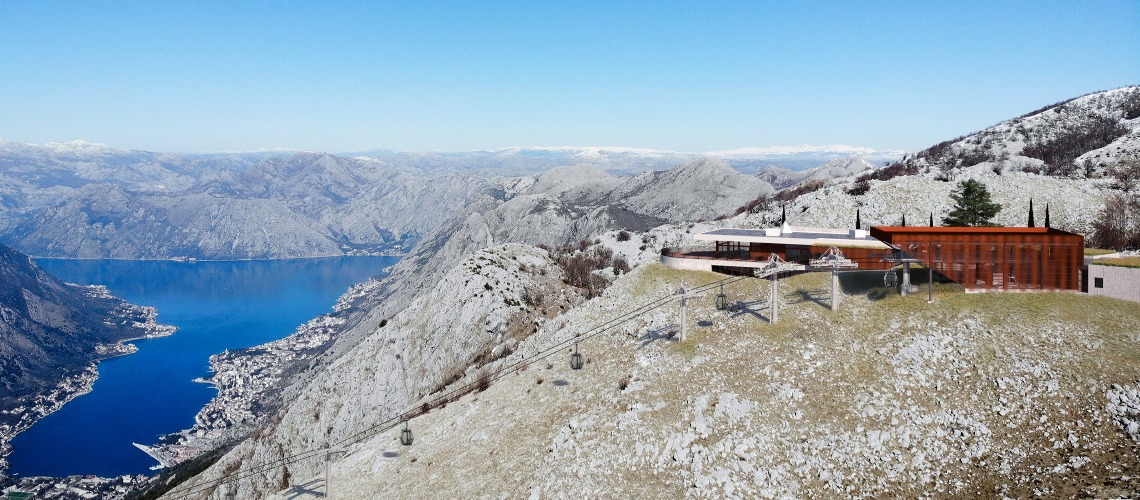From The Sea To The Mountains Via An Amazing Ropeway Now Possible In Montenegro Because Of Leitner

In summer 2023, the UNESCO world heritage city of Kotor opened one of Europe’s most spectacular ropeways, linking the coastal city with the Lovćen Natural Park to provide sustainable mobility in the heart of this striking natural
panorama.
The project’s construction posed a major challenge, overcome thanks to LEITNER’s sustainable technologies.
In Europe, there are very few places with a direct link between the sea and the mountains. Today, Montenegro joins the select group of countries that offer this facility: the 10-passenger gondola “GD10 Dub Kuk” starts from the port city of Kotor (Dub) and runs along a 3.9 km route to Kuk, on Mount Lovćen, 1,348 meters above sea level.
Apart from the breath-taking view over the picturesque Bay of Kotor, the most striking feature is the awesome climb from the bottom to the top station, of a massive 1,316 metres. The 25 million Euro project has 48 Diamond EVO premium cabins with wooden seats, panoramic doors and lighting system for use at night. Up to 1,200 people per hour will be able to take the trip of just eleven minutes from the bottom station at Dub
to the top station on Mount Kuk, slashing the journey time compared to the current 45- minute drive.
The heart of the system is LEITNER’s DirectDrive technology. Its outstanding reliability, energy saving of up to twelve percent compared to conventional systems, the absence of all lubricants and its easy maintenance are not the ropeway’s only strong points, since its technology is also, and above, particularly quiet. The already efficient drive system is completed by the LeitDrive frequency converter, which operates in perfect coordination with the motor to ensure impressive overall efficiency of 96 percent in all load ranges. With these technologies, the ropeway’s contribution to sustainability is even greater. The project will slash rates of use of the winding Njeguš road, significantly reducing motor traffic and thus the CO2 emissions generated by the use of cars and buses.
The ropeway’s on-schedule construction required a great effort on the part of the project team due to a number of factors. For example, since the time available was so short, assembly was completed in winter in spite of the snow, which was up to half a metre deep in places. Special solutions were also needed to deal with the length of almost four kilometres and the fact that part of the route ran through a residential area. Since the distance to be covered was exceptionally long for a detachable monocable ropeway, an especially strong rope of 58 mm in diameter, that was divided in two and shipped from Italy to Montenegro on two drums of 60 tonnes each for easier transportation, was used.
As the ropeway is on a much larger scale than those normally used in the Alps, its structural characteristics also had to be adapted to the project’s specific conditions. For example, some points of the top station were reinforced to withstand the stress generated by the rope’s high tensile force, which is about 120 tonnes, a third higher than in other installations of this kind. The steep inclination, of up to 45 degrees, is another crucial factor. To handle this, LPA-EVO grips, the largest in the LEITNER range and designed for ropes up to 64 mm in diameter, were selected for this project.
Another aspect to which the project team had to dedicate a great deal of attention was the geology and topography of the installation area. This challenge involved not only identification of the best position for each of the line’s 19 towers, bearing in mind the rocky and in some points almost inaccessible terrain, but also the development of ad hoc solutions for installation of the signal and communication cables.













